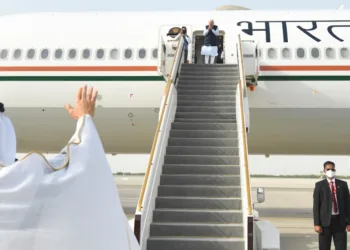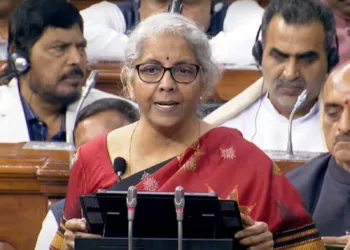With the increase in penetration of smartphones as well as the time spent by millennials on mobile content, besides the disenchantment of top mobile brands with China, mobile manufacturing in India is poised to take a quantum leap
BY KUMUD DAS
India has emerged as the second largest manufacturer of mobile handsets in the world in terms of volume. According to Amitabh Kant, CEO at NITI Aayog, over 200 units are manufacturing cellular mobile phones, up from only two units in 2014.
Apart from Samsung, several other global cellphone makers have already arrived in India. Foxconn is currently making the iPhone XR and iPhone 11 in its Chennai plant, whereas Wistron makes the 2020 edition of the iPhone SE at its Bengaluru plant. It has also made iPhone 7 and 6 before. Among Indian firms, the big names are Lava, Padget Electronics, Dixon Technologies, and Sojo Manufacturing Services.
With the disenchantment of global mobile manufacturing majors with China and their hectic search for new manufacturing bases, India is a natural choice for them due to congenial policies which have been adopted by the government at the centre.
With one of the lowest data tariffs in the world, internet users in India have more than doubled to 76.5 crore over the past five years with a massive 6.5 times growth in 4G data traffic. PLI (profit-linked incentive) has also considerably helped global cellphone makers in setting up their manufacturing bases here.
India boasts of a very high consumer base for electronic products. A recently released Nokia annual Mobile Broadband Index (MBiT) report reveals that 4G services contributed 99 percent to the country’s data consumption and are expected to continue as a broadband growth engine for the next few years even as 5G rolls out later this year.
“The CAGR (compound annual growth rate) of mobile data usage has gone to 53 percent during 2017-2021 and average data used by consumers per month basis is three times higher and gone to 17 GB per month per user. Mobile broadband users have grown 2.2 times in the last five years. All the perspectives of data usage have shown substantial growth in India,” says Nokia’s India head, Sanjay Malik.
The report has also revealed that India recorded the highest-ever shipment of more than 16 crore smartphones, including three crore 5G devices in 2021. The report said that millennials are now spending around eight hours per day online. Not to mention that smartphones are among the platforms they use for being online.
Nokia’s head of customer marketing and communications for India, Amit Marwah, disclosed that consumption of short video format, increase in penetration of smartphones in rural areas, and the time spent by millennials on mobile content are driving data consumption across the country.
Of course, 4G services contributed 99 percent of the total broadband that is consumed in India. The report shared third party estimates which forecast that by 2026, mobile 5G services are predicted to generate $9 billion in revenues.
Now here comes a caveat in the form of the recent report of the Joint Parliamentary Committee (JPC) on the Personal Data Protection Bill, 2019 which has become a kind of apple of discord between the stakeholders and the government. Not to mention that the JPC report was submitted
to Parliament last December.
The Internet and Mobile Association of India (IAMAI) has said that the Bill is out of sync with India taking the leadership position in the Techade. The association is of the view that the recommendations are likely to negatively impact a cross section of tech industry segments such as large
tech companies, tech services companies as well as digital start-ups which form the backbone of India’s tech leadership aspirations.
The JPC has recommended stringent data localisation requirements, which will lead to difficulties in compliance and will be harmful for global and domestic companies alike. Placing restrictions on cross-border flows may lead to higher business failure rates, create barriers for the growth of start-ups, increase costs of compliance for companies and slow down socio-economic benefits reaped from the digital economy. It will also inevitably have a negative impact on the ability of Indian consumers to access a truly global internet.
The additional requirement, suggested by the JPC, tasking the Data Protection Authority (DPA) to consult the Government of India (GOI) on all cross-border sensitive personal data transfers not only contradicts established global practices and undermines the role of the DPA, but also
subjects data flows to a cumbersome and inefficient process.
Additionally, the suggested retrospectively applicable requirement to bring back data taken abroad poses significant operational and technical challenges, especially since relevant businesses would be subject to policies which were not enforced at the time of data collection.
One more lesson is here in the wake of the ongoing geopolitical tension, resulting in the shortage of chipsets worldwide. To have a robust domestic ecosystem for mobile handset manufacturing, chipsets must be made in India. The good news is that, buoyed by support from the Centre, this is set to become a reality in the near future.
The writer is a Mumbai-based senior business journalist.








